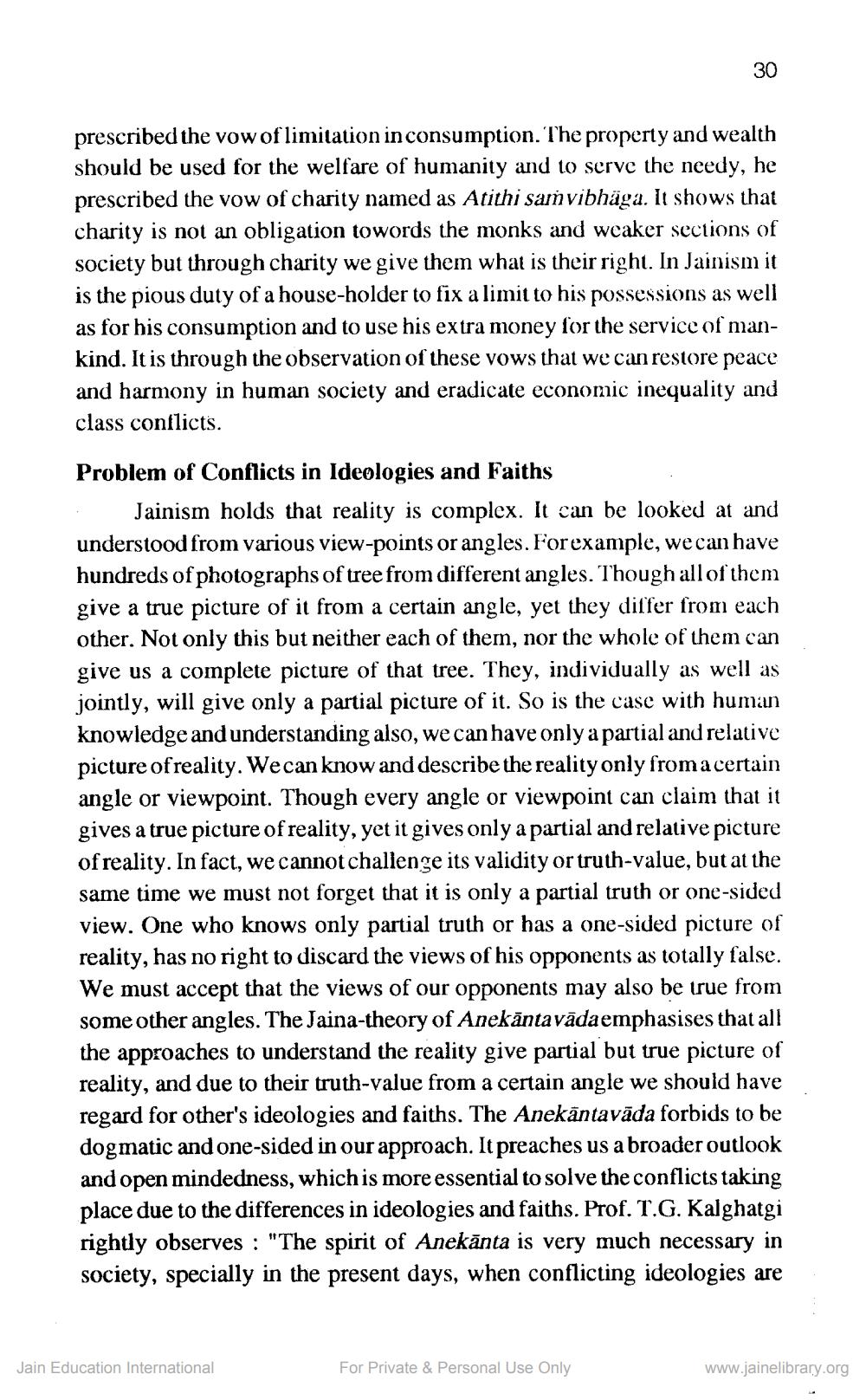________________
prescribed the vow of limitation in consumption. The property and wealth should be used for the welfare of humanity and to serve the needy, he prescribed the vow of charity named as Atithi sasvibhäga. It shows that charity is not an obligation towords the monks and weaker sections of society but through charity we give them what is their right. In Jainism it is the pious duty of a house-holder to fix a limit to his possessions as well as for his consumption and to use his extra money for the service of mankind. It is through the observation of these vows that we can restore peace and harmony in human society and eradicate economic inequality and class conflicts.
Problem of Conflicts in Ideologies and Faiths
Jainism holds that reality is complex. It can be looked at and understood from various view-points or angles. Forexample, wecan have hundreds of photographs of tree from different angles. Though all of them give a true picture of it from a certain angle, yet they differ from each other. Not only this but neither each of them, nor the whole of them can give us a complete picture of that tree. They, individually as well as jointly, will give only a partial picture of it. So is the case with human knowledge and understanding also, we can have only a partial and relative picture of reality. Wecan know and describe the reality only fromacertain angle or viewpoint. Though every angle or viewpoint can claim that it gives a true picture of reality, yet it gives only a partial and relative picture of reality. In fact, we cannot challenge its validity or truth-value, but at the same time we must not forget that it is only a partial truth or one-sided view. One who knows only partial truth or has a one-sided picture of reality, has no right to discard the views of his opponents as totally false. We must accept that the views of our opponents may also be true from some other angles. The Jaina-theory of Anekāntavādaemphasises that all the approaches to understand the reality give partial but true picture of reality, and due to their truth-value from a certain angle we should have regard for other's ideologies and faiths. The Anekāntavāda forbids to be dogmatic and one-sided in our approach. It preaches us a broader outlook and open mindedness, which is more essential to solve the conflicts taking place due to the differences in ideologies and faiths. Prof. T.G. Kalghatgi rightly observes : "The spirit of Anekānta is very much necessary in society, specially in the present days, when conflicting ideologies are
Jain Education International
For Private & Personal Use Only
www.jainelibrary.org




